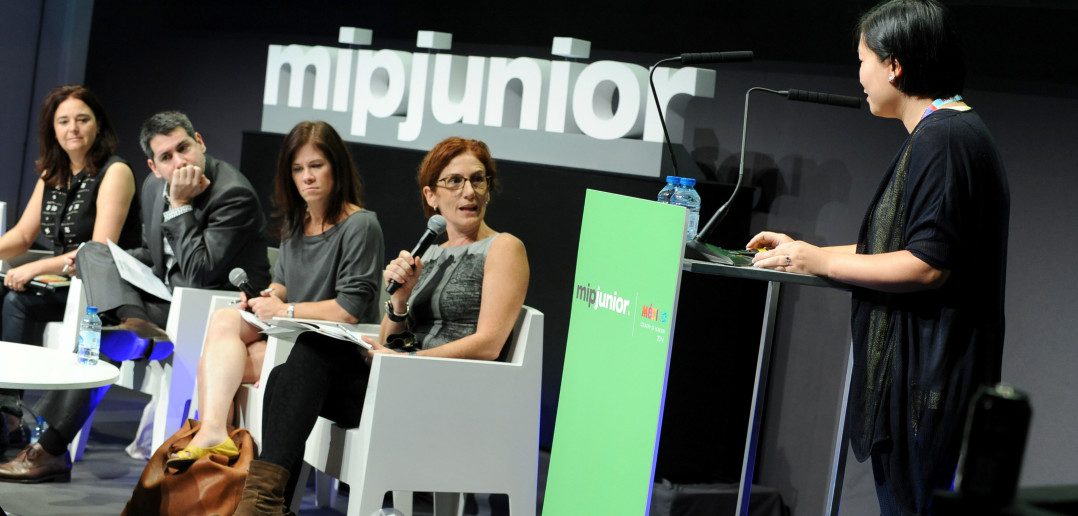Photo: Majid Entertainment’s pitch at the MIPJunior International Pitch 2014.
This is my fourth attempt at writing an article for MIPBlog on “Pitching”. If you’re talking to a screenwriter, they’re pitching a script. When you talk to a producer, the pitch is the whole project. If you’re an actor, you’re pitching yourself. I’ve read the internet “how to’s” on pitching and I even had pitching as part of my screenwriting classes at the University of Southern California. But really, what is a pitch? It’s where the business part of the entertainment industry meets the creative part. It’s where you become a salesperson and walk the fine line between making money and being an artist.
1. You have 30 seconds
Typically, I’ve found I have 30 seconds to gain someone’s interest. 30 seconds may not seem like a lot of time – but it is all you will have. It is the time that it takes to wait in line for coffee, ride in an elevator between floors or cross the street. Yes, you are always “on” the minute you step out of your house, or your hotel room if you’re at an event like MIPCOM.
2. Entertainment is a business
First and foremost, no one really cares about you or your story. What they do care about is if they can sell it. What makes your product more sellable than any other? What is that one thing that is unique? Passion and enthusiasm are important, but you have to be able to quantify and translate that emotion into box office or advertising dollars. The entertainment business is about relationships and the first impression, the first time you ever pitch someone, is important.
3. Always be prepared
If you’ve taken the time to write a script, make sure you have all of the necessary elements surrounding it. Do you have your one page outline, your treatment and your series bible (if you’re writing for episodic television)? If you’re a producer, do you have the script, budget and marketing plan? Actors should make sure they can actually deliver everything on their resume in a short amount of time. And, in the day of social media, is your website up to date with a demo reel?
4. Right place? Right time.
Opportunities were everywhere to pitch on a daily basis when you are in Los Angeles or New York. But, what if you live outside of those cities or in a foreign country? Well, this is where you travel to a market like MIPCOM. Request meetings, get your reel together and practice your pitch. Traveling to where the executive or investors are is a necessity. I’ve flown a lot from the east coast to the west coast of the United States to have lot of solo meetings in Los Angeles. However, it’s always more cost effective and time saving to travel to where nearly everyone is in the same place.
5. There are no rules
Now, take everything I just said and throw it out the window. Wait. What? Read everything you can about pitching. Practice your pitch. Perfect your pitch. Define your own unique style. Be yourself. There is only one you. What works for one product one time, may not work another. You have to be flexible and open to the ever-changing landscape of entertainment.
Now, part of me wants to rewrite this article a fifth time. Any advice I would have, just keeps changing. I just got done pitching a series, on a Sunday, while doing laundry. What started off as a casual conversation over coffee two weeks ago in Los Angeles, suddenly turned into a series meeting. That’s how these things happen – you just have to be prepared.
Jacqueline “J.A.” Steel is a US-based writer, director, producer and actress. She is a frequent contributor to MIPBlog; read all her posts here. Follow her projects here, and on Twitter here!




